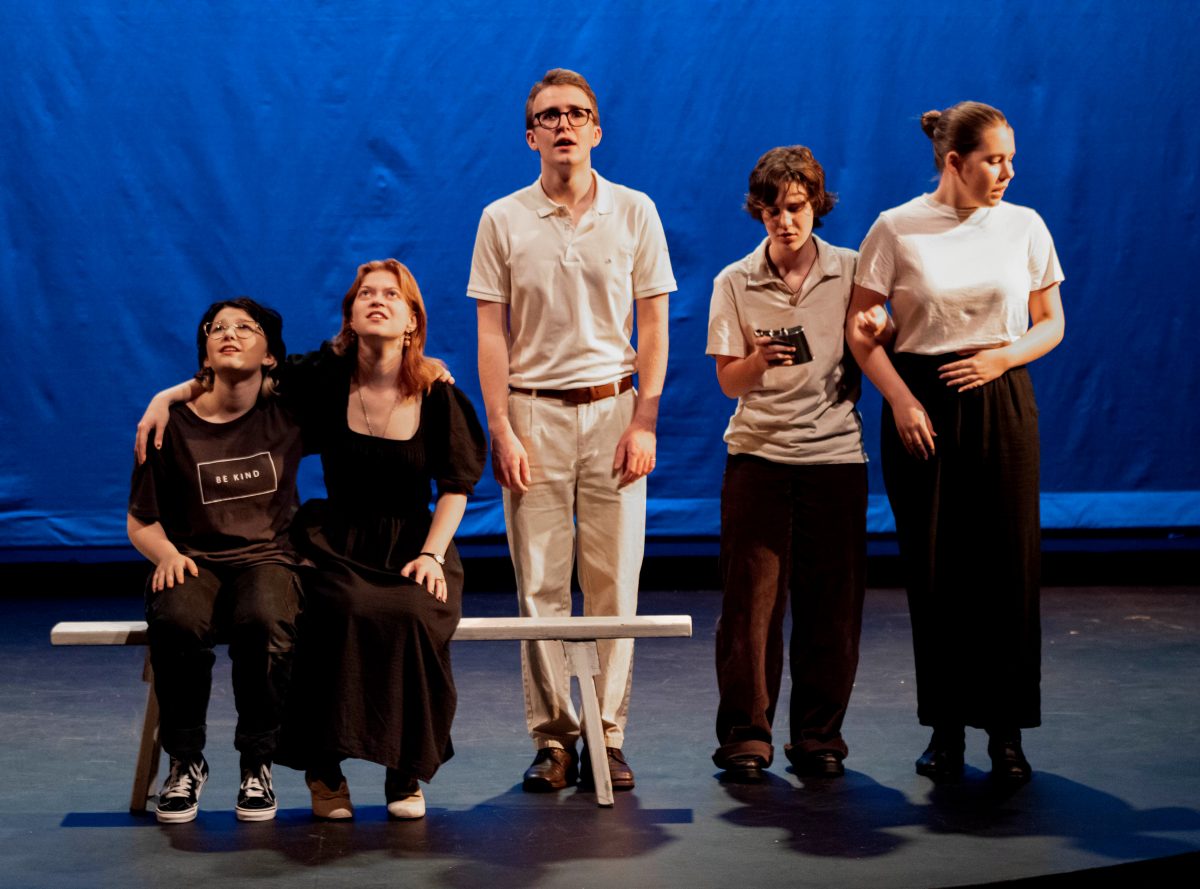Gabriel Cervino Guest Writer Some people could say that I am a very versatile person. They would be right. To prove my point, I’ve been to many clubs in high school. The Jewish Club, the AWESOME club, the Book Club, LASO, and many others. None of these places, however, got me as engaged or willing to reflect about my life as much as Men’s Alliance did. Created by Mr. Fript, this club’s title exposes a very obvious principle: it’s a club made for men, and allows only men in it. In the age of feminism, such a rule could easily be labeled as sexist, considering that LAW allows both male and female students among its members. Upon joining the gathering of men, however, I found out that the reasons for it were justified and necessary. If we compare Men’s Alliance with LAW, it becomes easy to see the differences between the two groups. While LAW is focused on the issues women face in society in general, Men’s Alliance is rooted on personal and revealing confessions from the boys who are a part of it. In this place, any young man can see that his male classmates have problems like himself. By sharing our personal experiences, good or bad, with other men of their own age, we can all feel like we are not alone in the constant search for masculine fulfillment. When I came there for the first time, I was the only junior present. I thought that to be very strange. Was anything keeping boys from my grade from joining the club? The rules were quickly explained to me, and for the vast majority of my first meeting, I remained in silence and listened to others. Among other confessions, some criticism was offered towards the boys from my grade for not participating in the club. Feeling outnumbered and with no one to back me up, I pretended to agree with all the claims. Suddenly, though, Mr Fript interceded in my favor, by saying “I bet Gabriel is thinking about punching each and every one of you in the face.” I was flattered. Someone had managed to read my mind and actually helped me to express things I did not dare to say. This resumes the purpose of the club. In a casual school break a week ago, I got into a conversation with a sophomore girl. She told me, “Boy’s need Men’s Alliance because they can never be open about what they feel. They always need to be though. This is why girls are not allowed there.” Having already experienced what the club really is, I simply responded, “It’s much more complex than that.” In our modern society, there is a huge disparity when it comes to gender roles. While the feminine role, that destined women to be nothing but caregivers and child bearers has changed drastically in the last decades, gender roles for men are limited. What men are harshly criticized for it’s not their ability to express emotions; there are many ways to do that, such as singing and composing sad music, joining a sports team in order to vent anger and stress, or telling dirty jokes to your best friends when you feel happy. What boys and men are not allowed to do, in our current state of affairs, is to openly talk about their problems. Because, for a man, being perceived as weak by society is the same as a death sentence. And sadly, searching for help from others is one of the fastest ways for a man to be perceived as weak and a failure in masculinity. I’m certain that, for many boys who are now participating in Men’s Alliance, the club represents a thankful and desired escape route. Most teenagers, male or female, feel uncomfortable when it comes to sharing their frustrations with parents. But while girls are open about doing this activity with their best friends, boys are often reluctant to do the same. Many times, the “communication failures” do not carry that much weight to them: such as anxieties about the college process, or the girl who rejected earlier that week. Things like this are a part of high school life, and yet, it’s hard for most guys, before cracking a joke and a high five, to talk about them. The people I found in there surprised me as well. When I looked around me in the circular table, much like a knight in a medieval court, I saw many boys who, in my opinion, had perfect lives. Good physical shape and athletic performances, attractive girlfriends, and even a fair amount of scholarships in their names. What did they have of so troubling to talk about, I wondered? In that meeting, the first ten minutes were enough to convince me otherwise. What I saw there, behind the varsity scholarships and the high social status, were guys like me who struggle to play by the “high school rules” everyday. Perhaps we live in a world where social acceptance is viewed as more important than our own private necessities, such as a true sense of friendship, strong bonds with our families, conquering stress and even a shoulder to cry on once in a while. This club opened me new horizons and taught me to be less judgmental and more laid back about myself and others. Over time, personal conflicts I had with myself before joining have slowly vanished afterwards, like a wisp of smoke. Mr. Fript truly does it justice, with his witty and funny comments about each member’s situation, his understanding of our problems due to personal experiences, and his full eagerness to help us. Finally, I would like to congratulate the senior Justin Kaplan for his announcement about the club. If it wasn’t for his speech, which deeply connected with me and made think “I need this”, I probably wouldn’t have considered joining. Men’s Alliance was one of the most profound experiences I’ve encountered at Latin so far. ]]>



































